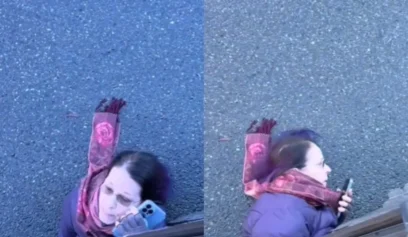France was aware that a genocide was being prepared in Rwanda and bears “significant” responsibility for enabling the killings, according to a report published Monday by the Rwandan government.
The report comes less than one month after a French report alleged that French authorities were “blind” to the preparations for the genocide but acknowledged officials responded too slowly to the killings.
“The French government was neither blind nor unconscious about the foreseeable genocide” the Rwandan report by U.S. law firm Levy Firestone Muse said.
In only a 100-day period between April and July 1994 in Rwanda, 800,000 people were slaughtered by ethnic Hutu extremists.
The Tutsis, an ethnic minority in Rwanda, had dominated the country until their monarchy was overthrown by the Hutus in 1959.
Fighting between the Hutus and a group of Tutsi exiles called the Rwandan Patriotic Front continued until a peace deal was reached in 1993.
Then, on April 6, 1994, a plane carrying two prominent Hutus, then-President of Rwanda Juvenal Habyarimana, and counterpart Cyprien Ntaryamira, president of Burundi, was shot down, killing everyone on board.
Hutu extremists blamed the RPF for the attack and orchestrated a systematic slaughter of the Tutsis.
The new Rwandan report is a part of an effort to document the role of French officials leading up to, during and following the genocide as French President Emmanuel Macron seeks to improve relations with the Africa nation.
A July 2000 report by the United Nations High Commissioner for Refugees, “Rwanda: The Preventable Genocide,” describes the history of the relationship between Rwanda, a former Belgian colony, and France:
12.12. In the years after independence, at the same time as it was vying with the US to increase its influence with neighbouring Zaire, France had edged out Belgium as Rwanda’s closest western ally; both were
French-speaking states. Over the years, various co-operation agreements, both military and civilian, established a solid permanent French presence in Rwanda,[15] France becoming one of Rwanda’s foremost creditors and arms suppliers. Relations between representatives of the two governments were unusually close at the personal as well as official levels.[16]
Rwandan President Paul Kagame is calling the current inquiry “an important step toward a common understanding of what took place.”
The French government is responsible for “enabling a foreseeable genocide,” according to the report, and “did nothing to stop” the killings.
Authors of the 600-page report also concluded that French officials tried to cover up its role in the massacre in the years after the genocide and offered protection to some perpetrators.
For decades, “the French government has covered up its role, distorted the truth, and protected” those who committed the crimes, the report said.
Specifically, the report claims former French President Francois Mitterrand continued to support Habyarimana despite having knowledge of the plans for the genocide.
In the years leading up to the genocide, “French officials armed, advised, trained, equipped, and protected the Rwandan government, heedless of the Habyarimana regime’s commitment to the dehumanization and, ultimately, the destruction and death of Tutsi in Rwanda,” the report said.
According to the report, France’s motive in supporting Habyarimana was the “expansion of France’s power and influence in Africa.”
While authors concluded there was “no evidence” that French officials participated directly in killing Tutsis, a French-lead military intervention supported by the United Nations and carried out on June 22 “came too late.” The U.N. intervention had been stymied for critical weeks as France and other international actors like the United States refused to authorize action, as described by former Deputy Assistant Secretary for African Affairs James Woods, who served at the Department of Defense from 1986 to 1994, described the international paralysis to PBS “Frontline” in 1999:
“[The] diplomatic community and the political leadership went into what we in the military called, ‘escape and evasion.’ And for two months they nattered on about, ‘Well, we’re not quite sure. There are apparent acts of genocide but we’re not sure that this is genocide. There are conflicting reports on casualties.’ I think much of this was simply a smokescreen for the policy determination in advance, ‘We’re not going to intervene in this mess, let the Africans sort themselves out.’”
This week’s report’s conclusions about France’s culpability in the 1994 atrocity mirror the findings put forth by a French report presented last month by an expert commission. The French report found that France bears “heavy and overwhelming responsibilities” in terms of what led up to the genocide, but that no weapons delivered by the French were used to carry out the violence. Many of the genocide victims were hacked to pieces with machetes.
Macron announced on April 7, the decision to declassify and make public archives from 1990 to 1994 that belong to the offices of the president and prime minister.
According to Rwanda’s Foreign Affairs Minister Vincent Biruta, the nation is looking to start a “new relationship” with France. “Maybe the most important thing in this process is that those two commissions have analyzed the historical facts, have analyzed the archives which were made available to them and have come to a common understanding of that past,” he told The Associated Press. “From there we can build this strong relationship.”


